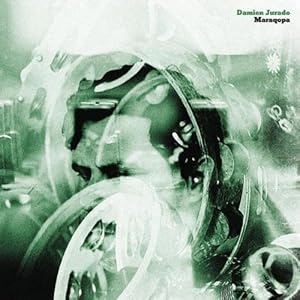
Damien Jurado
Maraqopa
Secretly Canadian; 2012
Amazon | itunes
Official Site | Facebook | MySpace
Official Site | Facebook | MySpace
The narrative is all wrong. The conclusion doesn’t fit the
facts. 2 plus 2 does not equal 5.
If you’ve been following the reviews for Maraqopa, you know the story goes
something like this: for 13 years Jurado was making steady if unspectacular
neo-folkie music. Due to their consistency, there was nothing wrong with them.
But there was nothing great either. He was caught in a rut of making the same
sounding album ad nausea. But then he
met producer Richard Swift.
He and Swift holed up in an Oregon Arkansas
Truthfully, Jurado’s always been something of a shape
shifter. For example, Ghost of David was
claustrophobic minimalism touched by flourishes of atonality. Where Shall You Take Me was his americana
Truthfully, rather than Saint
Bartlett/Maraqopa (as we’ll see) being some major step forward (which also
raises the question if perceived change is necessarily a good thing. That’s a
moral judgment I’m not willing to make.), for most of his 15 years as a
recording artist, he was the wrong guy, making the wrong music, in the wrong
place, at the wrong time. He started as a pop-folky unfavorably compared to
Elliot Smith and playing on a label—Sub Pop—in a city—Seattle Nome
With that new back story in place, I can safely say that Maraqopa is not a giant change in terms
of his overall MO. It is an expansion of his partnership with Swift. If Saint Bartlett touched on what they were
capable of as a duo, Maraqopa is its
full realization. The two are simply magical. And once again, Jurado shows
himself to be a capable chameleon.
Opening track “Nothing is the News” is like nothing he’s
done before. Gone is the gentle acoustic strum. In its place is a 5 ½ minute
druggy jab filled with blues riffs and psychedelia. For old fans it was a
“huh?” moment indeed. “Life Away from the Garden” features Jurado trading
lyrics with an echoing children’s choir over a steady snare drum, strings, and
an organ. The contrast between the two is sharp. And it’s a contrast that
continues throughout. “Everyone a Star” is a dark, slow ballad dominated by a
deep church organ type sound. The title itself is sung not in hope but in resignation.
It’s almost an indictment of a self-esteem culture that can do no wrong. But
then two tracks later, the tempo is sped up. The organ becomes a piano. The
guitar is more prominent. The tone turns hopeful: “don’t let go/I need you to
hang around”.
In an interview and
in-studio performance on KEXP, Jurado admitted the themes behind the album
came to him in a dream. Maraqopa is a
fictional town in his dream. (His wife told him it needed to be spelled with a
“k” or a “qu”. He told her that was how it was spelled in the dream.) The album
itself is a concept album about the town. (I haven’t been able to make heads or
tails of that claim yet). Further, he’s admitted that the album was deeply
influenced by the Jesus Movement of the 70’s. This, I can hear. The album hangs
as a slightly psychedelic folk jam full of religious and esoteric imagery. It
also pushes his sharp writing lines a bit to the side to focus on a more
impressionistic pastiche of people and places. The focus isn’t on the story per
se, but the feelings they invoke. Without making a value judgment on what is
better or worse, I have enjoyed hearing a slightly different lyrical style.
At the end of the day Maraqopa
should be more than just one of a great artist’s best albums. In a perfect
world, this would be recognized as one of the year’s best from a musical
treasure.
No comments:
Post a Comment